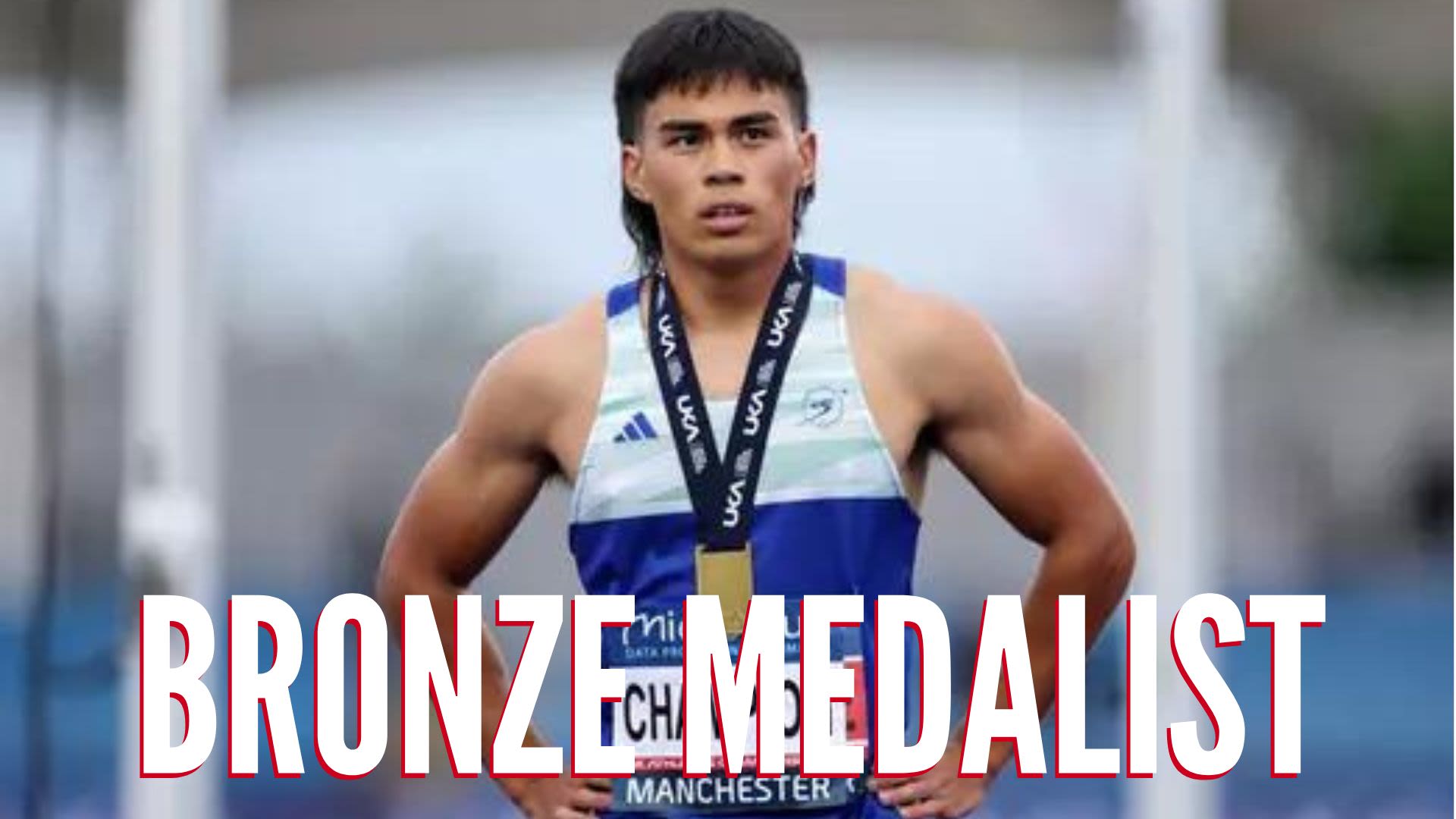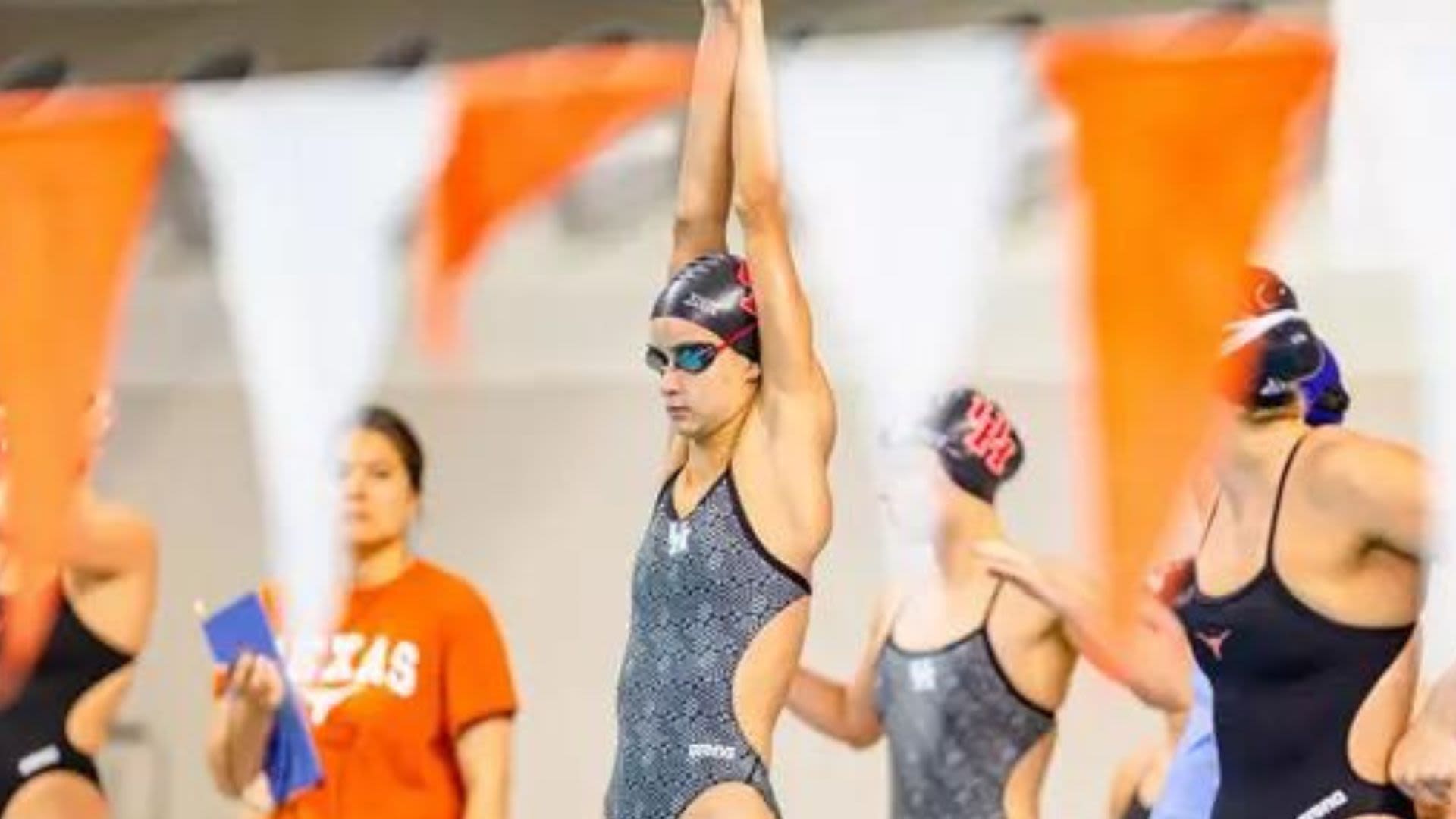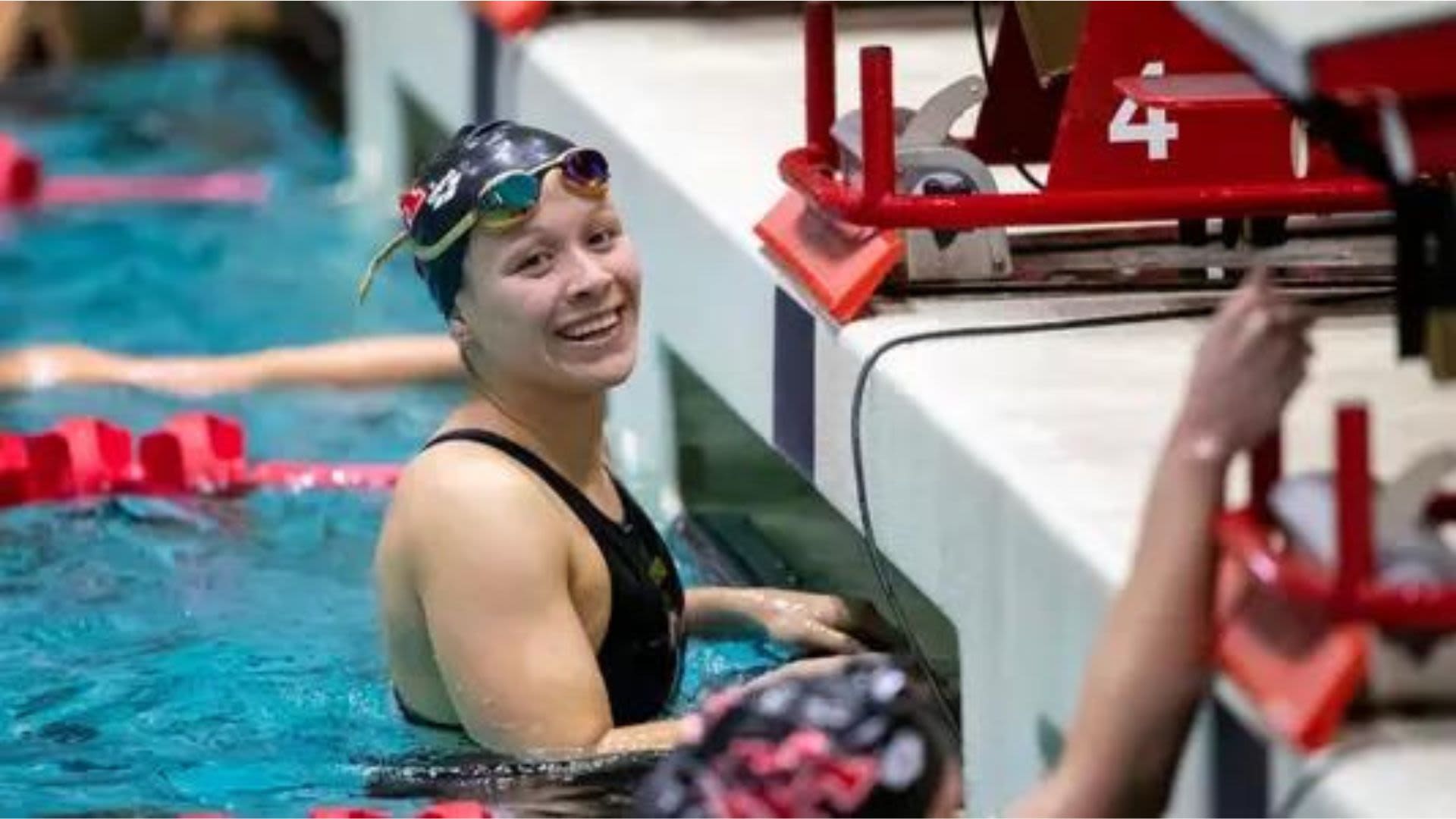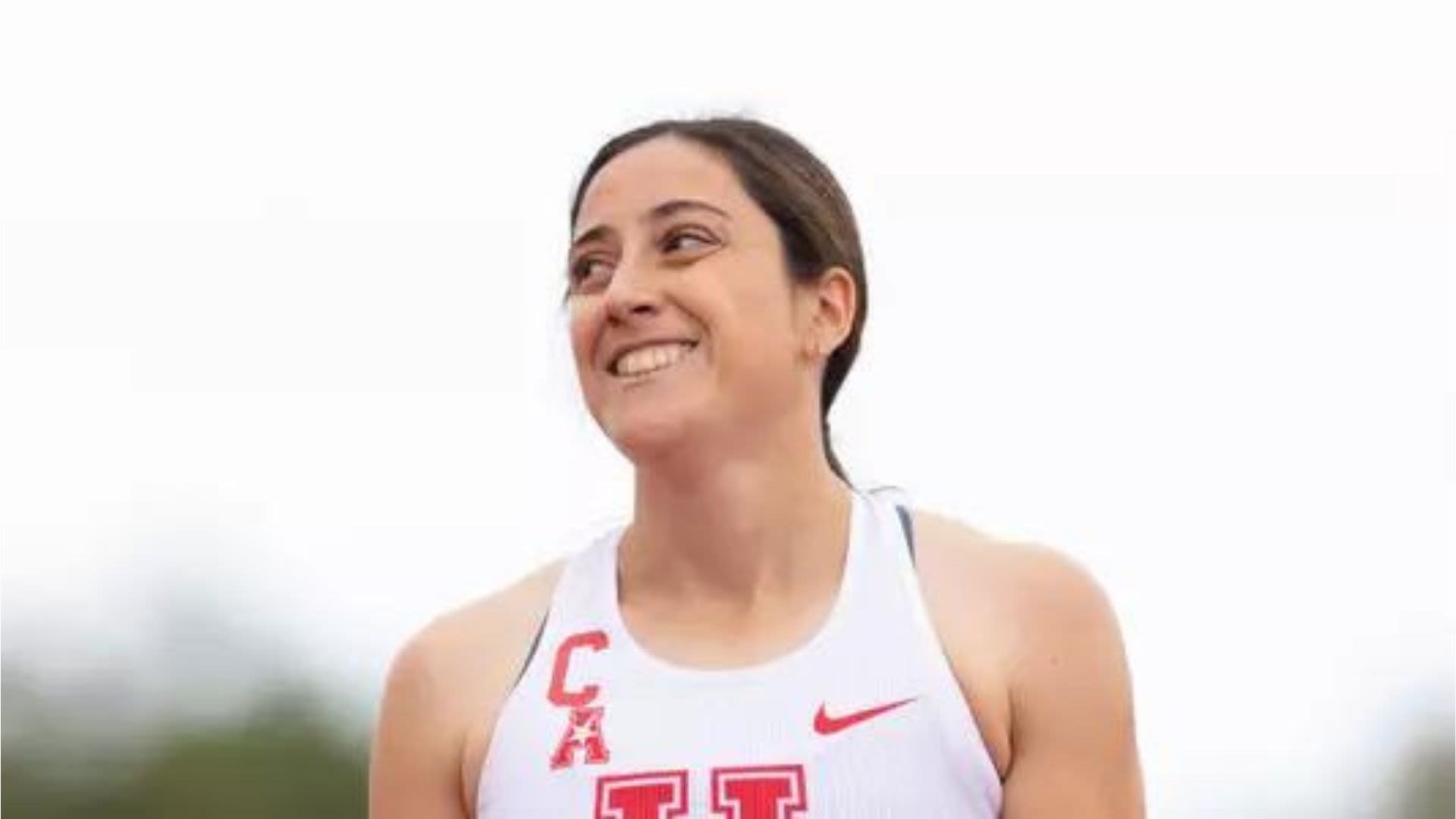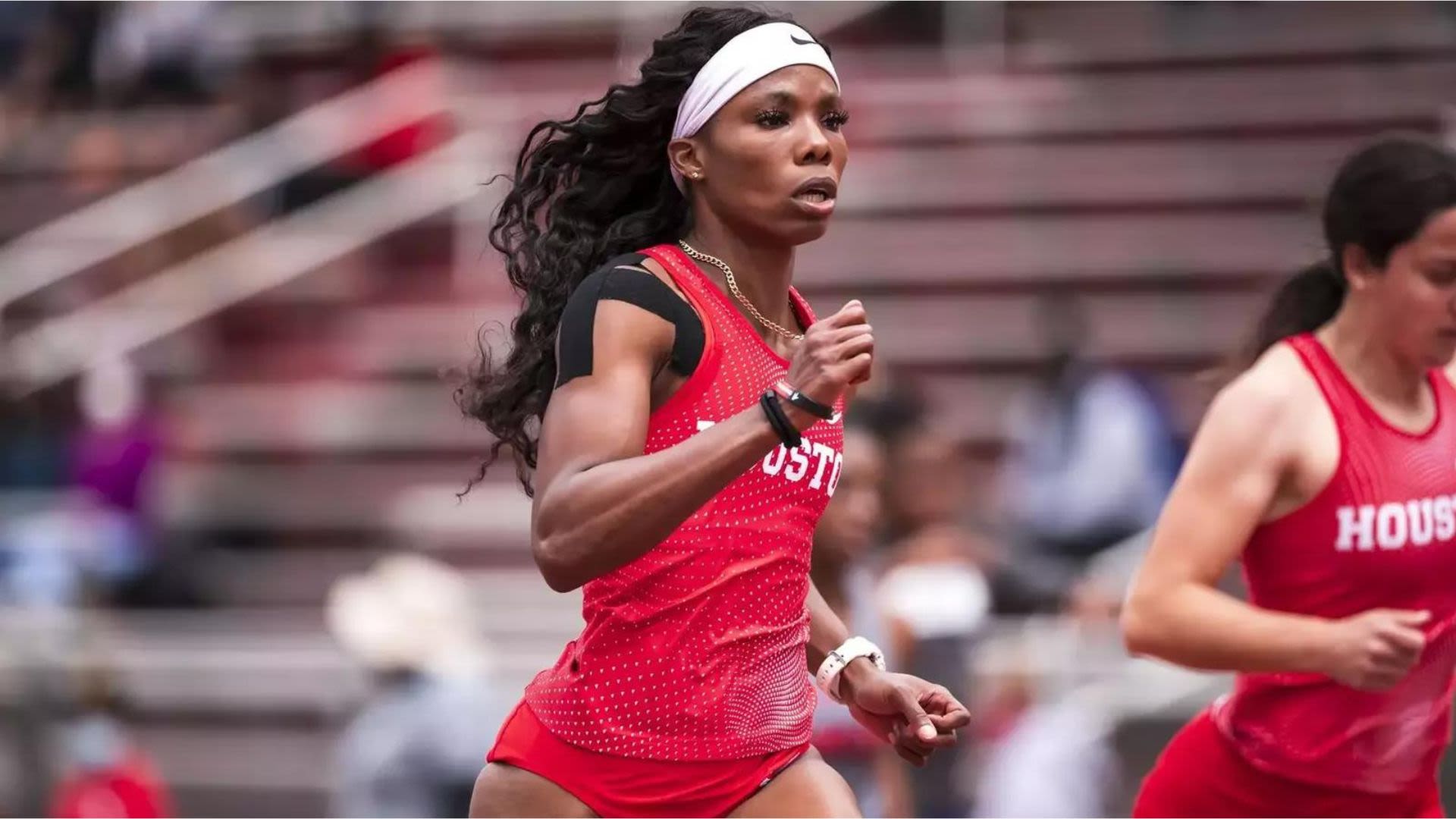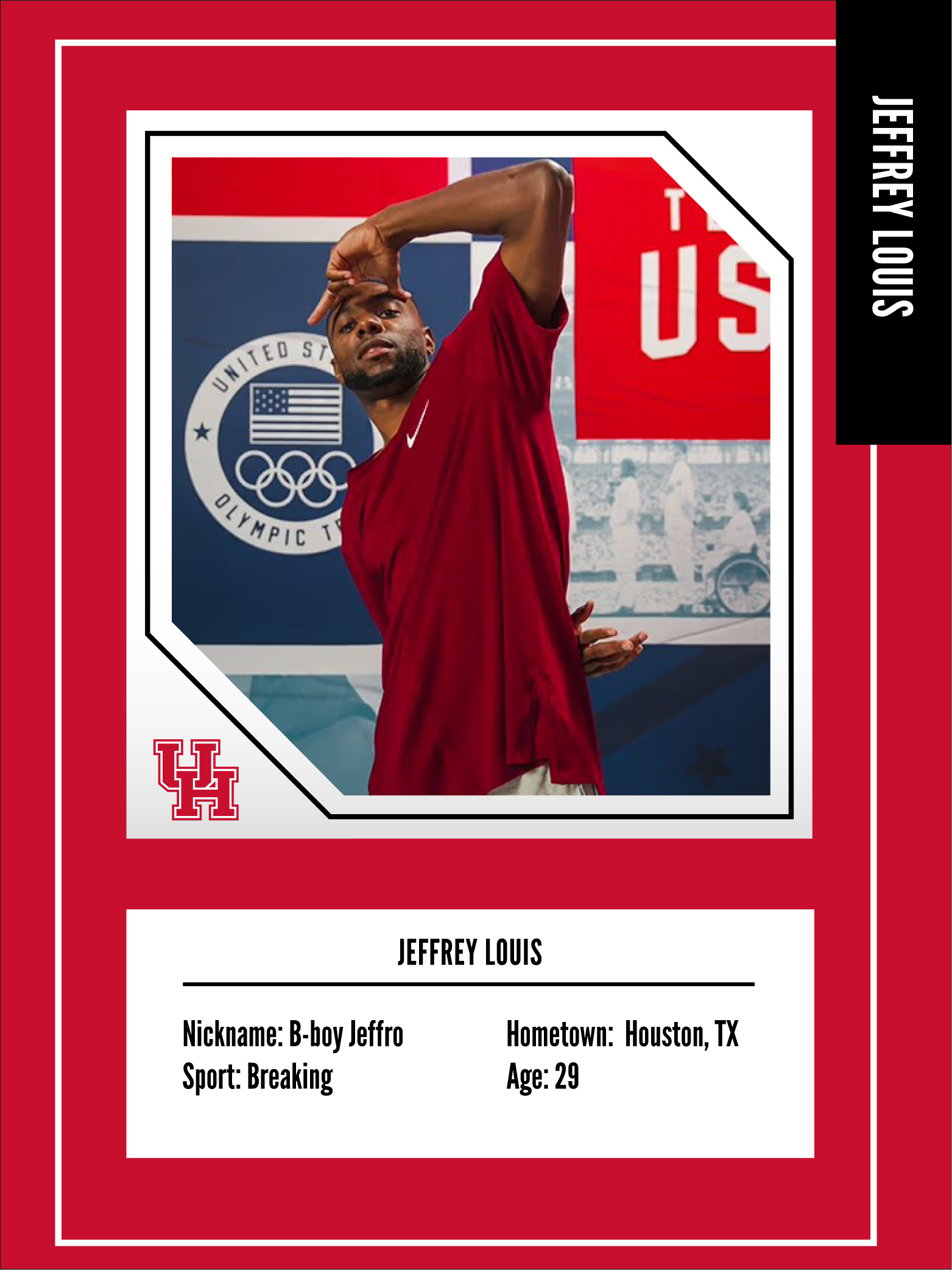Breaking Barriers
UH Alumnus Jeffrey Louis will Make (and Break) Olympic History
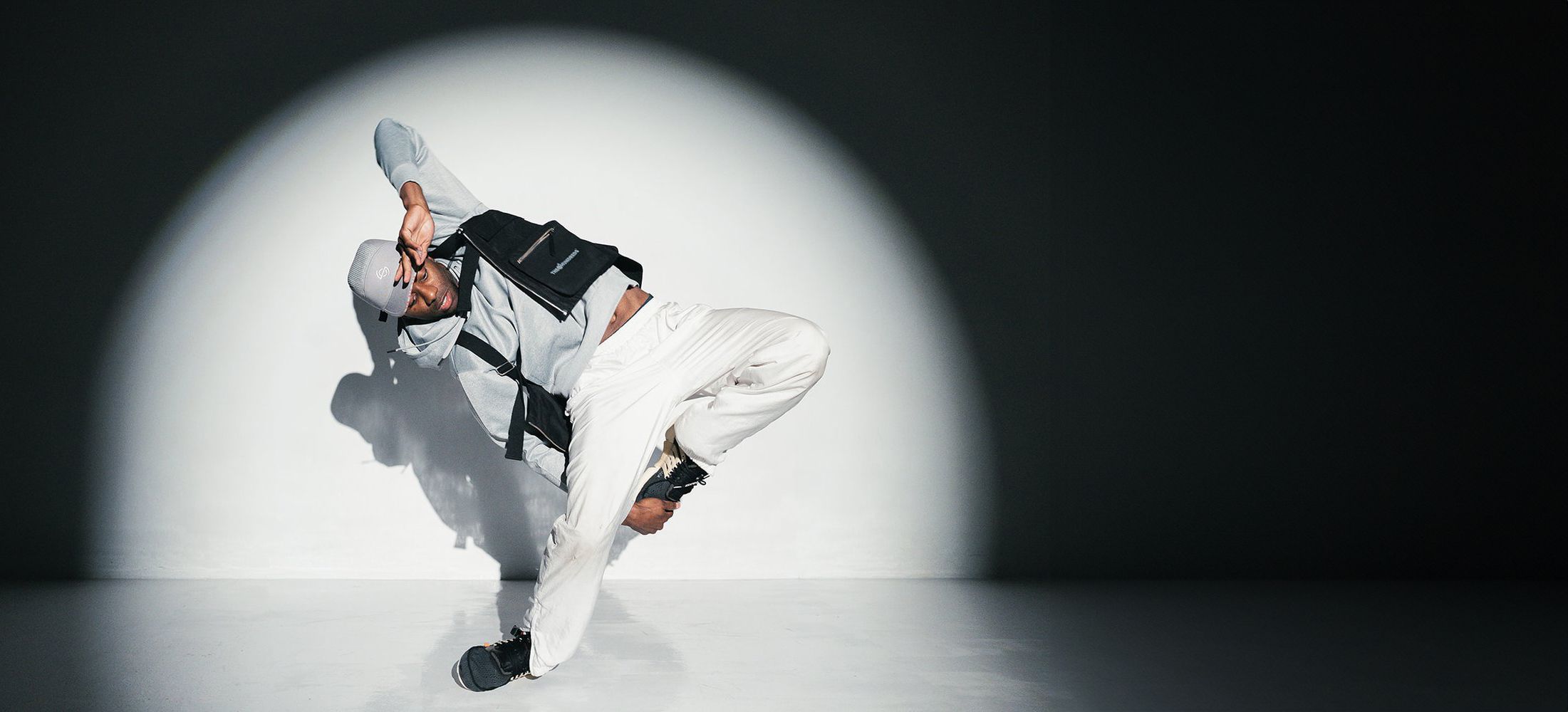
In the heart of Paris, amidst the historic grandeur and energy of the 2024 Olympic Games, a new chapter in sports history is unfolding. For the first time, breakdancing — an art form born from the streets and embraced by urban culture — is taking center stage as an official Olympic sport.
University of Houston alumnus Jeffrey Louis, who competes as “B-Boy Jeffro,” is proudly representing Houston on Team USA. In this Q&A, Louis and his coach Joel Aguilera, a UH adjunct professor of hip-hop dance, share their experiences at the Paris Games, the journey to get there and the significance of their mission: to showcase breaking as a legitimate and celebrated sport on the world stage.
Q: Jeff, How’s Paris? Let's start there.
JL: Paris is good. Everything’s been good. Training has been strong. Practice has been intense, and Paris has been good. The scene is nice. It’s just been incredible. We’ve been on the strong foot so that we have time to ramp it down right before the competition.
Q: Did you go to the opening ceremonies?
JL: Yeah, opening ceremonies were cool. It was pretty cool to see everybody just unite as one. Being aligned with other breakers in other countries that you would usually go against and you would never break bread with — just vibe out with, have lunch and just live with — has been great, especially in the breaking scene, where it started off as individual [competition].
Q: Was that your favorite part of the ceremony or was there something also that you saw that was particularly striking?
JL: Just watching everybody cheer for USA. The whole crowd, the energy, seeing people just standing up for you, cheering you on, standing in the rain for hours, just cheering. They could have left, but they stayed. You could hear it from the boats that we were in — the support, the love. It was pretty cool to see and just gave a different perspective on how [special] this whole event is. You’re all in, and you're all aligned under one country.
Q: What will it mean to you to take the stage, to represent not just the United States, but to represent Houston and UH as well?
JL: It means a lot. Coming from Houston, we have a lot of mixed cultures, vibes and communities. It’s just a melting pot of flavors and style. I have a lot of pride to bring Houston to a world stage and breaking to a world stage, especially with the people I came up with, like my coach, Joel Aguilera. He’s been teaching [me] since my time at University of Houston. He was at my side before breaking was a sport in the Olympics. We would go and practice in this area in the in front of the Starbucks at the Student Center. So that would be the spot. That was the spot where we would train and really try to develop our [breaking] style and character.
Q: Joel, if you wouldn’t mind chiming in what you thought when you first met Jeff and saw the potential in him. What was that like?
Joel Aguilera: Jeff and I go back to high school, so like 2010. He had been breaking for maybe just a year or two but already he was one of the best in the school. We trained during all of our high school days together and then in college, we would continue training and practicing. I've had a really good perspective of the actual trajectory of him evolving and growing as a “b-boy.” I’m not surprised that he's made it to the Olympic stage.
“What was striking was just watching everybody cheer for USA. The whole crowd, the energy.”
-Jeffrey Louis
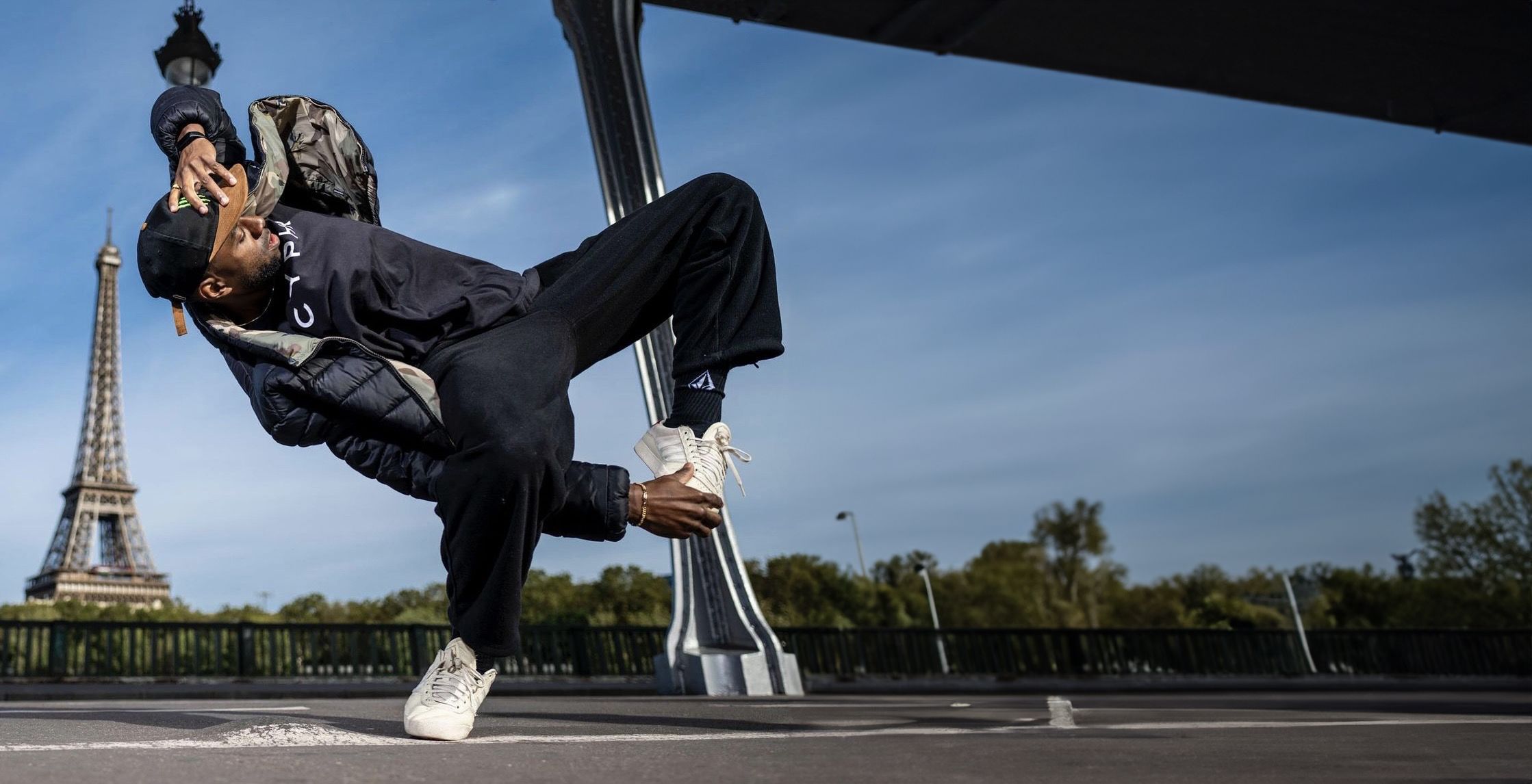
Q: When you think about how far you've come, that must kind of give you chills when you look at Paris today, right?
Joel Aguilera: Most definitely. We practice in a garage half our time. We make it to a studio when we can, or a nicer space. But it's always had that street element of just doing what you can with what you got. So, as it's been evolving, it's just crazy to see.
JL: You are making it happen with what you have. The things around that you can use to get a foot or an advantage. Having Joel around as a coach is significant. There was a time where he saw that there were areas where I needed to tweak and sharpen my strengths, and we would attack those areas and make them stronger.
Q: Can you talk a little bit about how the Paris Olympics gives legitimacy to what you guys have been working on for so many years?
Joel Aguilera: I think it’s something that we're all very proud of. Even with the Olympics, it's still something that I think hip-hop has always dealt with. Hip-hop is the leading music genre in America, and yet, there's a lot of people who doubt it. So with that doubt, everybody wants to prove everybody wrong, and in turn, this sharpens everybody’s skills. So, I think that's one thing that both of us really focus on is trying to legitimize hip-hop. That's definitely been one of my goals as a professor at UH. This past fall was the first time we introduced hip-hop to the university (as a class). Slowly but surely there are these steps that are happening to prove hip-hop and to legitimize it.
Q: Jeff, how would you describe your breakdancing style?
JL: Yeah, I like to describe my style as a vibe of explosions. Regardless if you’re in front of me, as my competitor, if you are in the stands or if you are the judge watching, you’re going to feel the energy. You’re going to feel the vibe. It’s going to be explosive. It’s going to be contagious.
Q: So what is the hardest part of what you do?
JL: The hardest part is trying to make people believe what you feel. Because technically, when the music is on, we’re dancing to songs that we don’t know. The DJ is playing whatever song that they decide to play, and it’s our job as dancers to adapt. Some people fall short when it comes to adapting, but one of my and my team’s specialties is adapting to any music that plays. It is our job to make the audience believe what we’re feeling.
Q: So how does the scoring work and what are the judges looking for?
JL: There’re two sides. One side is red, the other side is blue. There're five faders and characteristics that the competitors are being judged against. It's a comparative system. So there are no points. If dancer A is connecting with the music better than dancer B then the fader moves towards dancer A. Same thing with the five categories. You’ve got to be able to perform in each of those categories better than your opponent. The five categories are technicality, vocabulary, execution, technique and originality.
These judges are skilled and trained, and it’s not an easy test. It's a very complex test which eliminates biases. It shows just how well you could adapt and apply the criteria to the dancers.

Paris, France (📸: @jeffrorad)
Paris, France (📸: @jeffrorad)

Jeffrey Louis and Team USA in Paris. (📸: @jeffrorad)
Jeffrey Louis and Team USA in Paris. (📸: @jeffrorad)
“To excel, it has to be on your mind, 24/7. Have no expectations but give it your all”
- Jeffrey Louis

Jeffrey Louis and Coach Joel Aguilera at the 2024 Olympic Games in Paris. Aguilera teaches Hip-hop as an adjunct professor at UH. ( 📸: @jeffrorad)
Jeffrey Louis and Coach Joel Aguilera at the 2024 Olympic Games in Paris. Aguilera teaches Hip-hop as an adjunct professor at UH. ( 📸: @jeffrorad)
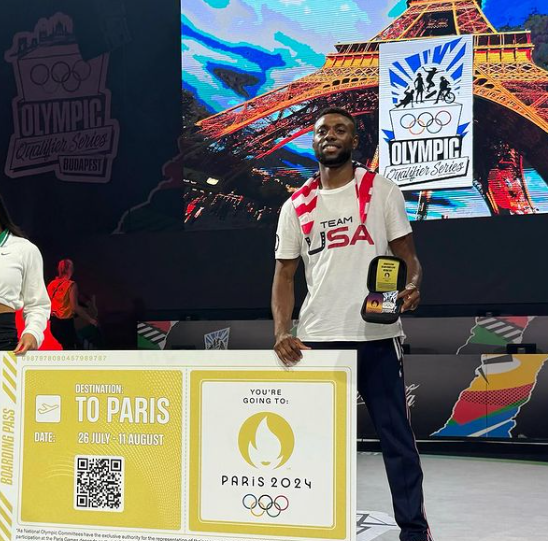
Jeffrey Louis shortly after qualifying for the 2024 Olympics. (📸: @jeffrorad)
Jeffrey Louis shortly after qualifying for the 2024 Olympics. (📸: @jeffrorad)
Q: How did your experience at UH shape you as a break dancer and professional?
For me, at University of Houston, I was able to adapt, and I think this is the main thing everybody should get from any school. Learning to adapt with your peers. Learning how to communicate, learning how to compromise through group work. There're just a lot of things that you had to be able to adapt to and be respectful as well. Everybody’s from a different place, and you don't know where they're coming from.
Being able to adapt helped me also in my professional life. I was able to create a business called FitBreak at the University. Mentally, I was already in an entrepreneurial type of mindset where I'm thinking ‘what’s the next thing to do?’ How do I adapt something from breaking to modern day fitness and create a fitness program? Even with my dancing on this world stage, the main thing is adapting. That’s been a huge advantage for me, for sure.
Q: Were there classes that you took in business or entrepreneurial basics at UH that helped prepare your business model?
JL: I took a corporate entrepreneurship class where we talked about promotion strategies, which is pretty much how to position yourself in a competitive market and how to thrive in an uncompetitive market. You have to create your own market. So that's the tricky part, separating yourself. And I've seen a lot in breaking — you have to separate your style from others but then you have to make your style work on the stage. Same thing with business. You have to create your own market if you want to create something new and stand out or be the best in a competitive market.
Q: I love that you’ve taken this passion for the sport and you've turned it into a business that can sustain even once you move on from an active participant in it.
JL: Exactly, It’s just finding a new way to get people physically active. Breaking could be used in a lot of different ways.
Q: Can you describe any specific challenges or milestones that you've encountered, on your journey? What has been the most difficult thing and what are you most proud of?
JL: The most difficult thing is trying to get people to appreciate or understand breaking, because it could easily be misinterpreted. A lot of people associate negative connotations with just hip-hop in general, and breaking is a branch of hip-hop.
My family came from Haiti to the U.S. looking for opportunities, and for me to find breaking wasn't the first thing that they would expect. It was a fight to get them to understand breaking and what I'm doing. But once we started getting some traction, they see how things are moving. They have supported me, and they’re 100% behind me.
Q: What advice would you give to aspiring athletes from the University of Houston who dream of competing in the Olympics or have a dream of making a living doing what they love.
You have to be obsessed with it. To excel, it has to be on your mind, 24/7, and I'm big on mindset too. Even though some people might not want to hear something like this, it does help me cope with just the idea of things not going your way. It could go the other way. It could go better and a different way.
I tell people to have no expectations but give it your all. Expectations could hurt you but giving it your all is giving it your all. Whatever comes out of it is what's going to come out of it. You just got to give it your all and have no regrets. You have to push. As long as you're a hard worker, it’s going to happen.
Jeffrey Louis, a.k.a. B-boy Jeffro, attended Westside High School in Houston and graduated from UH in 2018 with a degree in kinesiology and sports administration. He is the founder of FitBreak, a dance-based fitness company. He calls it a new approach to fitness that incorporates hip-hop's full body movement for effective training.
How is Breaking scored?
For all events, the competition consists of battles between two athletes. Each battle consists of a number of rounds. In each round, one athlete performs first then the other responds.
Nine judges assess the athletes across six categories. Performance and originality comprise 60% of the score, with the other aspects making up the remaining 40%.
- Originality
- Character
- Technical skill
- Diversity
- Performance
- Musical Interpretation.
Watch Jeffrey Louis compete Saturday, August 10th on Peacock/E!
9:00 a.m. - Olympics - Men’s Breaking Round 1
1:00 p.m. - Olympics - Men’s Breaking Finals
Olympic Coogs
COOGS MEDAL UPDATE: University of Houston sprinters Shaun Maswanganyi and Louie Hinchliffe closed out the 2024 Paris Olympic Games in winning fashion as they won silver and bronze, respectively, in the men's 4x100-meter relay inside Stade de France on Friday, Aug. 9.
